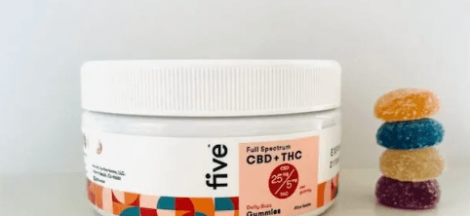CBD, or cannabidiol, has gained popularity in recent years for its potential therapeutic effects. However, like any substance, consuming too much CBD can have adverse effects on the body. One such effect is dizziness. This article aims to explore the question of whether excessive consumption of CBD can make you feel dizzy by examining the scientific evidence and factors that contribute to this sensation.
Understanding how CBD interacts with the body is crucial in comprehending its potential impact on dizziness. CBD is a compound found in cannabis plants, but it does not produce the psychoactive effects associated with THC. Instead, it interacts with the body’s endocannabinoid system, which plays a role in regulating various bodily functions such as pain perception, mood, and inflammation.
While there is limited research specifically focused on CBD-induced dizziness, anecdotal reports suggest that excessive consumption may lead to feelings of lightheadedness or imbalance. To better understand this phenomenon, we will delve into factors that contribute to dizziness from CBD consumption and strategies for managing it effectively.
Understanding CBD and its Effects on the Body
The effects of CBD on the human body are still being studied, with researchers aiming to understand how it interacts with various systems and whether excessive consumption can lead to adverse reactions such as dizziness.
Personalized dosing is crucial when it comes to CBD consumption, as individuals may have different sensitivities and tolerances. It is important to start with a low dosage and gradually increase it until the desired effects are achieved.
Long-term effects of CBD are also being investigated, but current evidence suggests that it has a generally safe profile with minimal side effects. However, excessive consumption of CBD may potentially lead to adverse reactions such as dizziness.
Further research is needed to fully understand the relationship between CBD dosing and its potential side effects in order to provide accurate guidelines for optimal usage.
Factors that Contribute to Dizziness from CBD Consumption
Individual sensitivity to CBD, dosage and potency of CBD products, and interactions with medications or other substances are important factors that can contribute to dizziness from CBD consumption.
Each person’s body may react differently to CBD, with some individuals being more sensitive than others.
Additionally, the dosage and potency of the CBD product can also play a role in causing dizziness, as higher doses or stronger concentrations may have a greater impact on the body.
Furthermore, it is essential to consider potential interactions between CBD and medications or other substances, as these interactions can increase the likelihood of experiencing dizziness.
Individual Sensitivity to CBD
Sensitivity to CBD varies among individuals, and understanding the extent of this variability is crucial in examining the potential for dizziness associated with excessive consumption.
Individual tolerance plays a significant role in determining how one reacts to CBD, as some individuals may require higher doses to experience the desired effects, while others may be more sensitive and experience adverse reactions even at lower doses.
Moreover, factors such as body weight, metabolism, and overall health can also influence an individual’s response to CBD.
It is important to note that while dizziness is a possible side effect of consuming too much CBD, it is not experienced by everyone.
Therefore, it is essential for individuals to start with low doses and gradually increase their intake while closely monitoring any adverse reactions.
Dosage and Potency of CBD Products
Variation in the dosage and potency of CBD products can significantly impact their effectiveness and potential side effects.
When it comes to CBD, finding the right product and dosage guidelines is crucial to achieving the desired therapeutic effects while minimizing any adverse reactions.
Different individuals may have different sensitivities to CBD, so it is important to start with a low dose and gradually increase until the desired effects are achieved.
It is also essential to consider factors such as body weight, metabolism, and overall health when determining the appropriate dosage.
Additionally, the potency of CBD products can vary widely depending on factors such as extraction methods, quality of ingredients, and concentration levels.
Therefore, it is recommended to carefully read product labels and choose reputable brands that provide clear information about their products’ potency.
Consulting with a healthcare professional or knowledgeable CBD specialist can also help in navigating through the vast array of available options to find a product that suits individual needs.
By following proper dosage guidelines and considering factors like potency, individuals can optimize their CBD experience while minimizing any potential dizziness or other unwanted side effects.
Interactions with Medications or Other Substances
Interactions between CBD and medications or other substances can be a critical consideration when incorporating CBD into one’s therapeutic regimen. It is important to understand how CBD may interact with other substances in order to avoid any potential adverse effects or unwanted interactions.
- Interactions with alcohol: Research suggests that combining CBD with alcohol may increase the impairment caused by alcohol. Both CBD and alcohol have sedative effects, and when taken together, they may intensify each other’s effects, leading to increased dizziness, drowsiness, and impaired motor skills. Therefore, it is advisable to exercise caution when consuming alcohol while using CBD products.
- Interactions with caffeine: Some individuals use CBD as a means of counteracting the stimulating effects of caffeine. However, there is limited research on the specific interactions between CBD and caffeine. While some anecdotal reports suggest that combining the two may help in achieving a balanced effect, more studies are needed to fully understand their interaction.
It is crucial for individuals considering using CBD to consult with a healthcare professional before incorporating it into their routine, especially if they are taking any medications or regularly consume substances like alcohol or caffeine. Healthcare professionals can provide personalized advice based on an individual’s unique health condition and medication regimen to ensure safe and effective use of CBD products.
Managing Dizziness from CBD Consumption
Contrary to popular belief, excessive consumption of CBD may induce feelings of dizziness, posing potential challenges for individuals seeking to manage this side effect.
When experiencing dizziness from CBD consumption, it is important to consider lifestyle adjustments that can help alleviate these symptoms. One approach is to ensure proper hydration by drinking enough water throughout the day. Dehydration can contribute to dizziness, so staying hydrated can be beneficial in managing this side effect.
Additionally, avoiding sudden movements or standing up too quickly can help minimize feelings of lightheadedness. Engaging in regular exercise and maintaining a balanced diet are also important factors that may contribute to overall well-being and potentially reduce dizziness symptoms.
Furthermore, it is advisable for individuals who experience persistent or severe dizziness from CBD consumption to consult with a healthcare professional for further evaluation and guidance on managing this side effect effectively.
Potential Benefits of CBD
One potential benefit of CBD is its ability to alleviate symptoms associated with various medical conditions. Research suggests that CBD may have anti-inflammatory properties, making it useful in reducing pain and inflammation in conditions such as arthritis or multiple sclerosis.
Another potential benefit is CBD’s ability to reduce anxiety and improve sleep quality. Studies have shown that CBD can help to reduce anxiety symptoms in individuals with social anxiety disorder, post-traumatic stress disorder, and generalized anxiety disorder. Additionally, CBD has been found to have a calming effect on the central nervous system, which can promote better sleep.
Lastly, preliminary studies indicate that CBD may have neuroprotective properties and could potentially be used for the treatment of neurological disorders such as epilepsy or Parkinson’s disease. However, more research is needed to fully understand the potential risks and long-term effects of using CBD for these purposes.
Potential Side Effects of CBD
Evidence suggests that the use of CBD may result in potential side effects, such as drowsiness, dry mouth, and changes in appetite or weight.
CBD has been found to have sedative properties and may help improve sleep quality for individuals with insomnia or other sleep disorders. Research has shown that CBD can interact with receptors in the brain that regulate sleep-wake cycles, leading to a more restful night’s sleep.
Additionally, studies have indicated that CBD may have anti-anxiety effects by interacting with serotonin receptors in the brain. This interaction can potentially reduce anxiety symptoms and promote a sense of calmness.
However, it is important to note that individual responses to CBD may vary, and some individuals may experience adverse effects such as dizziness when taking higher doses of CBD. It is always recommended to start with a low dose and gradually increase if needed while closely monitoring any potential side effects.
Read Also: Cbd Oil Keeps Me Awake At Night
Seeking Medical Advice
When considering the use of CBD, it is essential for individuals to seek medical advice in order to receive professional guidance and ensure their personal health and safety.
Medical professionals are trained to understand the potential interactions and side effects of CBD with other medications or conditions an individual may have.
They can provide personalized recommendations based on a thorough evaluation of the individual’s medical history, current medications, and overall health status.
While online forums may offer anecdotal information about CBD use, it is important to note that these sources may not always be reliable or accurate.
Consulting with a healthcare provider ensures that individuals receive evidence-based information and appropriate dosing guidelines specific to their needs.
By seeking medical advice, individuals can make informed decisions about their CBD use and minimize potential risks or adverse effects.
Quality and Source of CBD Products
A key aspect to consider when evaluating the use of CBD is the quality and source of the products available, as they can greatly impact their effectiveness and safety.
The safety of CBD products is a concern due to potential risks associated with their use. While CBD itself is generally considered safe, the lack of regulation in the industry means that there are variations in product quality and consistency. This can result in products containing contaminants or incorrect concentrations of CBD, which may pose health risks.
Additionally, some studies have found that certain CBD products may interact with other medications, potentially leading to adverse effects. Therefore, it is important for consumers to research and purchase CBD products from reputable sources that provide third-party lab testing to ensure product safety and efficacy.
By doing so, individuals can minimize potential risks associated with using CBD products.
Personalizing CBD Consumption
Personalizing CBD consumption involves finding the right product and determining the appropriate dosage for an individual’s needs. With a wide variety of CBD products available in the market, it is crucial to consider factors such as quality and source.
However, personalizing CBD consumption goes beyond these initial considerations. Each person may have different responses to CBD due to variations in body chemistry, metabolism, and overall health. Therefore, it becomes essential to find the optimal dosage that provides desired effects without causing adverse reactions like dizziness or other side effects commonly associated with excessive CBD intake.
By starting with a low dose and gradually increasing it until achieving the desired results, individuals can personalize their CBD consumption to suit their specific needs while minimizing any potential negative effects.
Additionally, consulting with a healthcare professional can provide valuable guidance and support in determining personalized dosing strategies and selecting suitable products based on individual requirements.
Other Potential Causes of Dizziness
Another factor that may contribute to dizziness is the presence of underlying medical conditions or medications being taken concurrently.
Certain medical conditions, such as inner ear disorders or vestibular migraines, can disrupt the body’s balance mechanisms and lead to feelings of dizziness.
Additionally, certain medications, including those used for high blood pressure or anxiety, may have side effects that include dizziness.
It is important to consider these factors when experiencing dizziness after consuming CBD, as they may be unrelated to CBD consumption itself.
Consulting with a healthcare professional can help identify any underlying conditions or medication interactions that could be contributing to the dizziness.
Keeping a Journal
Keeping a journal can be an effective method for individuals to track and analyze their experiences with CBD consumption in order to identify any patterns or triggers that may contribute to feelings of dizziness.
Journaling benefits include providing a record of the amount and frequency of CBD consumed, as well as any accompanying symptoms such as dizziness.
By tracking CBD consumption, individuals may be able to determine if there is a correlation between higher doses or specific strains of CBD and feelings of dizziness.
Additionally, keeping a journal allows individuals to document other factors that may influence dizziness, such as medication changes, stress levels, or diet modifications.
This comprehensive approach can help individuals gain insights into their unique reactions to CBD and make informed decisions about their consumption habits.
Common Myths and Misconceptions about CBD and Dizziness
Keeping a journal can be a useful tool for individuals who are interested in tracking their experiences with CBD usage. However, it is important to be aware of common myths and misconceptions surrounding CBD and its potential effects on dizziness.
One such myth suggests that consuming too much CBD can cause feelings of dizziness or vertigo. While some individuals may experience dizziness as a side effect of using CBD, research indicates that this is not directly caused by the compound itself but rather by individual factors such as dosage, metabolism, and interactions with other medications.
In fact, studies have shown that CBD may actually have potential benefits for individuals suffering from balance issues or vertigo. By interacting with the body’s endocannabinoid system, CBD may help regulate equilibrium and improve overall balance.
Therefore, it is crucial to approach these claims with caution and consult with healthcare professionals to determine an appropriate dosage and assess any potential risks or benefits related to CBD use for dizziness or balance-related concerns.
Research and Studies on CBD and Dizziness
Research and studies have provided valuable insights into the potential effects of CBD on dizziness, shedding light on its ability to interact with the body’s endocannabinoid system and potentially improve balance and equilibrium. CBD has been found to have a balancing effect on the endocannabinoid system, which plays a crucial role in maintaining homeostasis in the body.
This may contribute to its potential benefits in addressing dizziness and vertigo. A study published in Frontiers in Neurology explored the use of CBD for treating episodic vertigo, reporting positive outcomes with reduced frequency and severity of vertigo attacks.
Another study published in The Journal of Vestibular Research found that CBD administration improved balance control mechanisms in rats with induced vestibular dysfunction.
While these studies provide promising evidence, more research is needed to fully understand the mechanisms through which CBD interacts with the endocannabinoid system to influence balance and alleviate dizziness symptoms.
Frequently Asked Questions
Can CBD interact with other medications and cause dizziness?
CBD can interact with other medications, potentially causing dizziness. It is important to consider potential drug interactions and consult with a healthcare professional before combining CBD with any other medications.
Is it possible to build a tolerance to CBD and experience dizziness as a result?
Building a tolerance to CBD may result in dizziness for some individuals. However, CBD has been shown to provide relief from dizziness symptoms in certain cases, indicating its potential as a therapeutic option.
Can CBD cause dizziness even if it is taken in recommended doses?
Excessive CBD consumption can potentially lead to dizziness, although it is not common when taken in recommended doses. However, persistent or severe dizziness may be a sign of an underlying health issue and should be evaluated by a healthcare professional.
Are there any specific groups of people who are more likely to experience dizziness from CBD consumption?
Pregnant women and elderly individuals may be more susceptible to experiencing dizziness from CBD consumption. Limited research suggests that hormonal changes during pregnancy and age-related factors could contribute to this potential side effect. Further studies are needed for a conclusive understanding.
Can CBD help alleviate dizziness caused by other medical conditions?
CBD has shown potential as a treatment for vertigo, a condition characterized by dizziness. Research suggests that CBD may improve balance and coordination, which could help alleviate dizziness caused by certain medical conditions.
Conclusion
In conclusion, it is important to understand that CBD consumption can potentially cause dizziness, but this is not a common side effect and is usually mild and temporary. Factors such as dosage, individual tolerance, and interaction with other medications play a role in determining the likelihood of experiencing dizziness.
By starting with a low dosage and gradually increasing it, individuals can minimize the risk of dizziness. Additionally, staying hydrated and avoiding sudden changes in posture can also help manage any potential dizziness.
It is crucial to note that CBD has numerous potential benefits for various health conditions such as chronic pain, anxiety, and epilepsy. However, like any medication or supplement, CBD may have potential side effects including dizziness. It is always recommended to consult with a healthcare professional before incorporating CBD into your routine to ensure its suitability for your specific needs.
While some people may associate dizziness solely with CBD consumption, it is essential to consider other possible causes such as dehydration, low blood sugar levels or underlying medical conditions. Keeping a journal can help identify patterns or triggers of dizziness and provide valuable information when discussing symptoms with a healthcare provider.
Overall, research on the effects of CBD on dizziness is limited but promising. More studies are needed to fully understand how different factors contribute to the occurrence of dizziness from CBD consumption. By following proper guidelines and consulting healthcare professionals when necessary, individuals can safely benefit from the potential advantages that CBD offers while minimizing the risk of experiencing adverse effects like dizziness.





 Power of CBD with 30 mg capsules
Power of CBD with 30 mg capsules